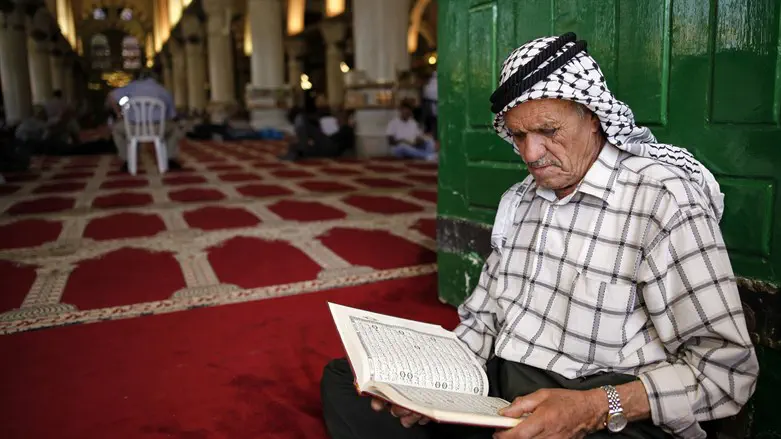
Amine Ayoub, a writing fellow with the Middle East Forum, is a policy analyst and writer based in Morocco.
As the month of Ramadan approaches (appr. evening of Fri, Feb 28, 2025 – Sat, Mar 29, 2025, depending on moon sighting), Israel faces a critical decision concerning its national security. Historically, this period has been marked by heightened tensions and attempts to maintain a fragile calm. Last year, a ceasefire during Ramadan sought to reduce conflict, but its implications for Israel’s security were concerning. This year, continuing the current ceasefire through Ramadan would pose significant risks, particularly given Hamas's history of exploitation and aggression. The organization has consistently demonstrated its intent to destabilize the region, making its elimination an imperative for lasting peace.
Hamas, designated as a terrorist organization by Israel, the United States, the European Union, and others, represents one of the most significant threats to Israeli security. Operating out of the Gaza Strip, Hamas has engaged in a long-standing campaign of violence, employing rockets, tunnels, and other means to target Israeli civilians and infrastructure. Its ideology seeks the destruction of Israel, and it uses every opportunity to regroup, rearm, and plan future attacks.
The ceasefire during Ramadan last year temporarily reduced direct violence, but it allowed Hamas to focus on rebuilding its operational capabilities. The lull in hostilities was deceptive; behind the scenes, Hamas replenished its stockpiles, repaired its networks, and bolstered its propaganda efforts to recruit and radicalize. By the end of the ceasefire, the group was better positioned to launch attacks, further endangering Israeli lives.
Ramadan, a sacred month for Muslims worldwide, is a time for reflection, prayer, and fasting. However, extremist groups like Hamas have a history of using religious occasions to stoke tensions and rally support. During Ramadan, heightened religious fervor can sometimes be manipulated by Hamas to incite violence, particularly through incendiary rhetoric and misinformation campaigns.
For Israel, the challenge lies in balancing the respect for Muslim religious observance with the necessity of ensuring national security. While a ceasefire might appear a gesture of goodwill, it can inadvertently embolden Hamas. Such periods of calm provide the group with a strategic advantage, allowing them to regroup without immediate pressure.
The 2024 Ramadan ceasefire, though well-intentioned, highlighted the dangers of trusting Hamas to uphold peace. Intelligence reports indicated that during the ceasefire, Hamas intensified its smuggling operations, bringing weapons and materials into Gaza. The group also expanded its network of underground tunnels, which are used to store weapons and facilitate attacks.
Moreover, Hamas leveraged the ceasefire to propagate anti-Israel narratives, portraying itself as a defender of Palestinian Arab rights, all the while continuing to oppress its own population. The temporary halt in Israeli operations was misconstrued as weakness, emboldening Hamas to escalate its activities once the ceasefire ended.
Given these realities, extending the current ceasefire through Ramadan would be a strategic misstep. Hamas has consistently shown that it cannot be trusted to honor agreements in good faith. Instead, it uses periods of calm to strengthen its capabilities and plan future offensives. Allowing this to happen would jeopardize Israel’s security and undermine the efforts to neutralize a persistent threat.
The Israeli government must take a proactive stance to dismantle Hamas’s infrastructure and diminish its influence. This includes continued intelligence operations, targeted strikes on key facilities, and disrupting supply chains that enable the group’s activities. While these actions might provoke criticism from the international community, they are essential for protecting Israeli citizens and ensuring long-term stability.
The ultimate goal of Israel’s security strategy should be the elimination of Hamas as a viable threat. This requires a multifaceted approach that combines military action with efforts to address the underlying conditions that allow Hamas to thrive. For instance, improving the economic and social conditions in Gaza could undermine support for Hamas, as many Palestinian Arabs are disillusioned with the group’s corruption and failure to provide basic services.
Additionally, Israel must strengthen its alliances with moderate Arab nations, leveraging the Abraham Accords to build regional consensus against Hamas. Collaborative efforts in intelligence sharing, counterterrorism, and economic development can help isolate Hamas and reduce its ability to operate.
Ramadan is intended to be a time of reflection and renewal for Muslims, but for Israel, it also presents unique security challenges. Extending the current ceasefire through this period would only serve to empower Hamas, allowing the group to regroup and prepare for future attacks. Israel’s responsibility is to protect its citizens and ensure the safety of the region. This requires a firm stance against Hamas and a commitment to its elimination as a threat.
